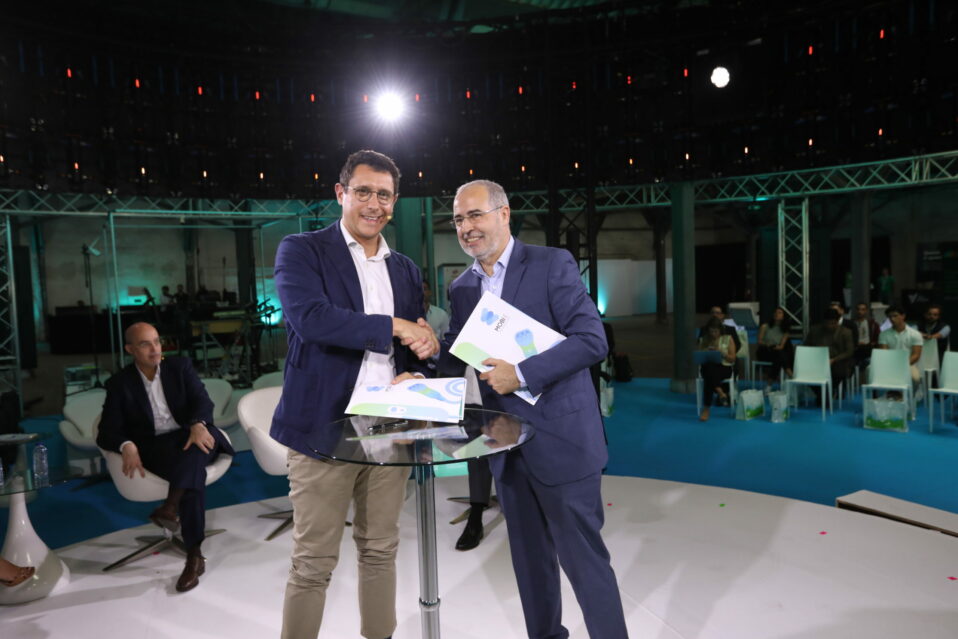Atlante arrived in Portugal more than a year ago, but has already set its sights on leading the electric charging market. It has currently reached fourth place, surpassed by three Portuguese companies.
The company is French-owned by Paris-listed Nehua, and in turn is Taiwanese-owned by Taiwan Cement Corporation (TCC), which recently bought Portuguese cement company Kempor.
Its entry into the national market was made through the purchase, for €4.5 million, of KLC, a company from Aveiro that owns and operates one of the largest networks of electric vehicle charging stations in Portugal.
Currently, on the Mobi.E network, EDP leads with 933 stations, followed by Galp with 712, Horizon Distance (owned by Power Dot), Atlante (437), and KLS (284).
“I personally want to be like that [número um]. We want to be a leading company. We want to deliver capital expenditures, we want to invest and grow. Our goal is to be in first place, on the podium. “We entered Portugal to be one of the major players, and we want to continue to grow,” the company's Iberian director told JE Giovanni Ravina (on the left in the photo, next to Mobi.E president Luís Barroso).
“We entered Portugal a year ago with the purchase of KLC. This acquisition was a way to accelerate our plan. Since then, we have installed more chargers from them, invested more capex and installed more than 250 fast chargers. Last year, we were the company that installed the most of chargers all over the country,” Atlante’s Iberian director told JE on the sidelines. For the MOBI conference, which was held on Friday in Lisbon.
In February, Ring – Redes Energéticas Nacionais has announced a partnership with Atlante to benefit from electric vehicle charging projects from ultra-high voltage lines. REN has 9,500 kilometers of lines in Portugal.
The goal is to develop five projects in Portugal using stations from Transalpine to create “the world’s first electric vehicle fast-charging stations powered directly by ultra-high voltage transmission lines.”
“It's a great partnership. It's a fast technology that connects very high voltage to low voltage. We can charge chargers, as well as charge in the absence of the grid. If we think about highways or locations like truck service stations, where megawatt charging is needed from “Energy, this could be a very important technology.”
Regarding the use of REN technology in other countries, he said that “the focus now is on Portugal, starting with the pilot and possible expansion. Establishing large service stations with truck capacity… would be a great example for exporting to other locations. But first in Portugal and then “Maybe expanding internationally.”
On Friday, the company signed a memorandum with the director of the national public network, Mobi.E, aimed at supporting the “international expansion” of the Portuguese company. “It's an opportunity for us to upload to the Mobi.E platform, which is an option for them to upload [na rede da Atlante] On the other side of the border.”
The agreement aims to implement interoperability solutions between Portugal and Spain, with the aim of improving the Iberian users' experience between Portugal and Spain.
Regarding TCC's recent purchase of Cimpor Cement, the official said the idea was to “start working” with the cement company to “explore synergies”.
Historically, Atlante made batteries, and now makes car chargers. The company aims to create the largest fast and ultra-fast charging network in Southern Europe. The goal is to install 5,000 charging points in Italy, France, Spain and Portugal by 2025 and more than 35,000 by 2030.
Transalpine has also partnered with automotive producer Stellantis to produce the chargers together.
Regarding new purchases in Portugal, the Italian company says it is not actively searching. “We have a platform that allows us to grow organically, but we do not rule out good opportunities to invest and buy. We are always looking for investment opportunities.”
“Portugal is a key market for us. If good opportunities are there, capital expenditure will not be a problem. Our shareholder wants to continue investing, and money is no limit to our ambition,” concluded Giovanni Ravina.

“Wannabe internet buff. Future teen idol. Hardcore zombie guru. Gamer. Avid creator. Entrepreneur. Bacon ninja.”

